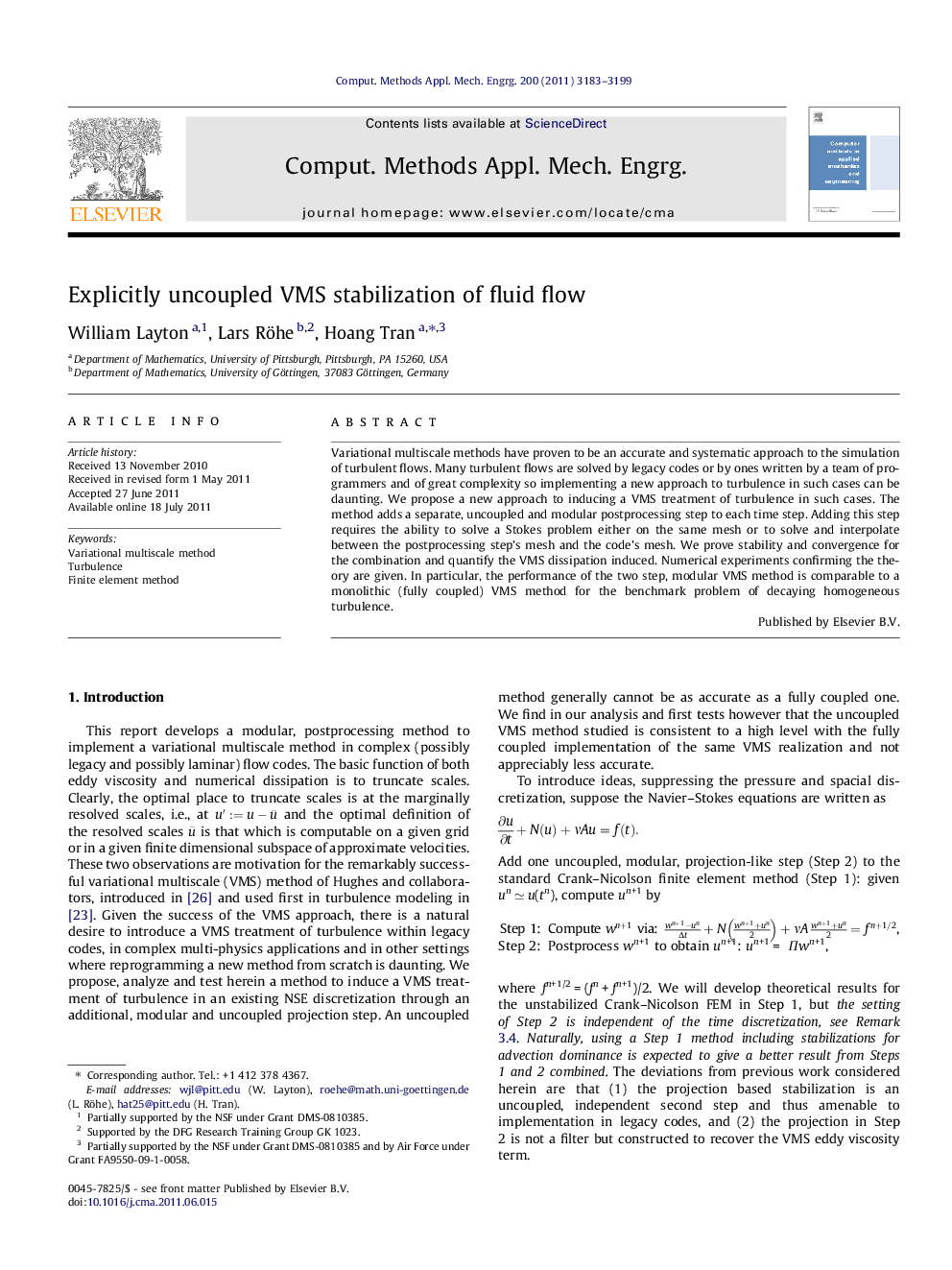| Article ID | Journal | Published Year | Pages | File Type |
|---|---|---|---|---|
| 498504 | Computer Methods in Applied Mechanics and Engineering | 2011 | 17 Pages |
Variational multiscale methods have proven to be an accurate and systematic approach to the simulation of turbulent flows. Many turbulent flows are solved by legacy codes or by ones written by a team of programmers and of great complexity so implementing a new approach to turbulence in such cases can be daunting. We propose a new approach to inducing a VMS treatment of turbulence in such cases. The method adds a separate, uncoupled and modular postprocessing step to each time step. Adding this step requires the ability to solve a Stokes problem either on the same mesh or to solve and interpolate between the postprocessing step’s mesh and the code’s mesh. We prove stability and convergence for the combination and quantify the VMS dissipation induced. Numerical experiments confirming the theory are given. In particular, the performance of the two step, modular VMS method is comparable to a monolithic (fully coupled) VMS method for the benchmark problem of decaying homogeneous turbulence.
Highlight► A new approach to inducing a VMS treatment of turbulence within legacy codes. ► Our method adds a separate, uncoupled step to an existing NSE discretization. ► We prove the proposed method is stable and accurate. ► Uncoupled method gives results competitive with the fully coupled method.
